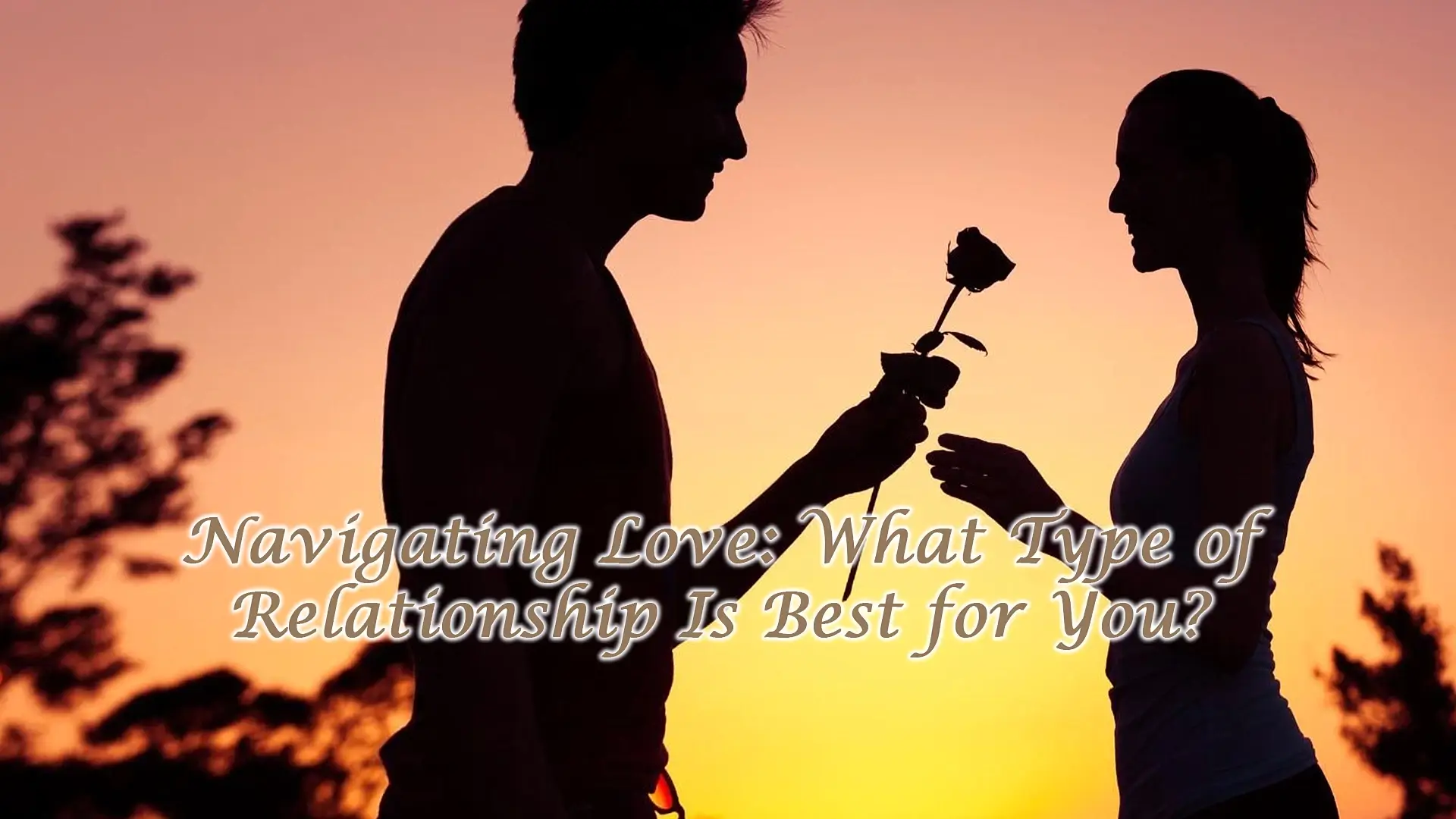Navigating Love: What Type of Relationship Is Best for You?
In the complex landscape of human connections, the question of “What type of relationship is best?” is one that resonates with many individuals seeking meaningful connections and lasting companionship. The pursuit of the ideal relationship is a deeply personal and evolving journey, influenced by individual values, life experiences, and emotional needs. In this exploration, we will delve into various types of relationships, shedding light on their dynamics and helping you discern what might be the best fit for you.
Traditional Romantic Relationships
The most conventional and widely recognized type of relationship is the traditional romantic partnership. Rooted in monogamy, this arrangement typically involves exclusive commitment between two individuals. The foundation of trust, communication, and shared values often characterizes these relationships. Many people find fulfillment and security in this familiar structure, building a life together with a singular focus on each other.
However, it’s essential to recognize that traditional romantic relationships come in various forms and degrees of commitment. Some may prioritize marriage and family, while others may emphasize a committed partnership without formal vows. Understanding your own aspirations and expectations is crucial in determining the type of traditional relationship that aligns with your values.
Open and Polyamorous Relationships
In contrast to the traditional model, open and polyamorous relationships challenge societal norms by allowing for multiple romantic or sexual connections simultaneously. These relationships are built on transparency, communication, and consent among all involved parties. Advocates argue that they provide a more expansive and honest approach to love, allowing individuals to explore diverse connections while maintaining open communication.
Choosing an open or polyamorous relationship requires a high level of self-awareness and emotional intelligence. It demands effective communication, trust, and a solid foundation of boundaries to ensure the well-being of all participants. For those who value freedom, exploration, and the potential for deep connections with multiple partners, this type of relationship may offer a fulfilling alternative.
Companionship Without Commitment
Not everyone seeks the intensity of a romantic or sexual relationship. Some individuals find contentment in companionship without the constraints of formal commitment. These connections can take various forms, such as close friendships, companionship-based living arrangements, or even co-parenting partnerships. The emphasis here is on shared interests, mutual support, and emotional intimacy without the pressure of romantic expectations.
Choosing companionship without commitment allows for flexibility and personal growth while maintaining a strong emotional connection with others. It’s an option for those who prioritize friendship and shared experiences over the traditional markers of a romantic relationship.

Long-Distance Relationships
The modern world has opened up new possibilities for relationships, including those that span great distances. Long-distance relationships, often facilitated by technology, challenge individuals to maintain emotional closeness despite physical separation. These connections can arise from work, education, or personal circumstances that require partners to live in different locations.
Success in long-distance relationships hinges on effective communication, trust, and a shared commitment to the end goal—reuniting in the same location. While the challenges are undeniable, many individuals find that the unique experiences and shared effort required in long-distance relationships strengthen the emotional bond between partners.
Self-Love and Solo Living
In the pursuit of understanding what type of relationship is best, it’s crucial to acknowledge that not everyone may prioritize external connections. Self-love and solo living involve embracing and cultivating a deep connection with oneself. This may include prioritizing personal growth, pursuing individual passions, and finding contentment in one’s own company.
Choosing a life centered around self-love doesn’t mean isolation or the absence of connections with others. Instead, it emphasizes the importance of a strong foundation in one’s individual identity. This type of relationship is characterized by a profound understanding of one’s needs and desires, fostering personal development and well-being.
Assessing Your Unique Needs
As you navigate the landscape of relationships, it’s essential to reflect on your own values, aspirations, and emotional needs. Consider the following questions to guide your exploration:
- What are my long-term goals and aspirations? Reflect on whether your goals align with the traditional family structure, non-monogamous arrangements, or a focus on individual growth.
- What level of commitment am I comfortable with? Determine whether you thrive in exclusive commitments, value the flexibility of open relationships, or prefer the freedom of companionship without formal ties.
- How do I prioritize personal growth and individual pursuits? Assess whether you seek a partnership that complements your personal journey or if you find fulfillment in solo pursuits and self-discovery.
- What role does communication play in my ideal relationship? Consider the importance of open and honest communication in your relationships, whether you prioritize transparent discussions about multiple connections or value a more private and intimate connection.
And so
Ultimately, the question of “What type of relationship is best?” has no one-size-fits-all answer. The ideal relationship is deeply personal, shaped by individual experiences, values, and aspirations. Whether you find fulfillment in traditional romance, open connections, companionship without commitment, long-distance relationships, or solo living, the key is to align your choices with your authentic self.
As you embark on this journey of self-discovery, embrace the beauty of evolving relationships and recognize that your needs and desires may change over time. Be open to exploring different types of connections, and most importantly, prioritize communication, trust, and mutual respect in any relationship you choose. Remember, the most fulfilling relationship is one that resonates with your truest self and brings joy, growth, and a sense of purpose to your life.




It’s always helpful to see how others navigate different relationship dynamics.
The inclusion of real-life examples and case studies adds a personal touch to the article, making it more relatable.
The article concludes with a reminder that relationships require ongoing effort and adaptation.